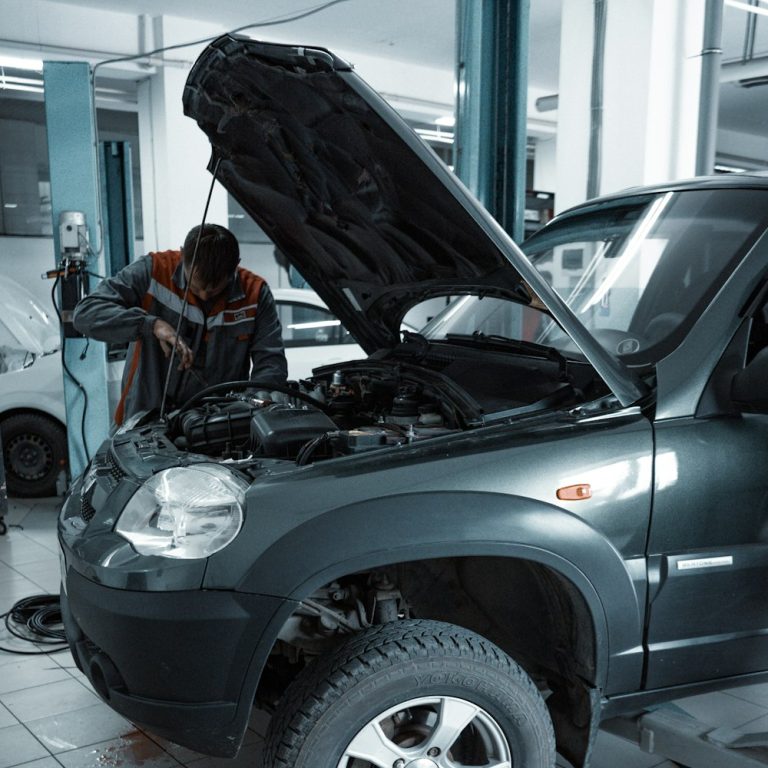Car owners often dread radiator leaks. It could be a small leak from an old hose or a big one because the radiator cracked, but either way, losing coolant can make your driving experience pretty stressful. You really can’t just ignore it; if your car overheats, you might end up stuck somewhere with a huge bill for engine repairs.

Why is Your Radiator Leaking?
When it comes to radiator leaks, you’ll mainly find two kinds: those on the outside and those hidden inside.
External Leaks
-
- Worn-out hoses and hose clamps
Over time, the rubber hoses that link your radiator to the engine might wear out. This can cause them to crack or their clamps to loosen up. When this happens, you’ll often see drops or puddles of coolant underneath your car, showing there’s a leak.
-
- Faulty radiator cap
The cap on the radiator helps keep pressure steady in the system. When it’s not put on right, this can lead to coolant leaking out.
-
- Physical damage
Tiny rocks, slight bumps, or simply brushing up against other vehicles can harm your radiator and lead to leaks.
Internal Leaks
-
- Corrosion
Over time, your radiator can get clogged with rust and mineral bits. This makes it weaker and might lead to leaks. It happens a lot in older cars or ones that don’t get their coolant changed often.
-
- Water pump issues
The water pump helps move coolant around. When the seal of the pump breaks or if there’s damage to the impeller, it can cause a leak in the coolant.
-
- Head gasket failure
This issue is pretty serious. It happens when the head gasket, which keeps the engine block and cylinder head tightly sealed, doesn’t work right. Because of this failure, coolant might start leaking into the engine’s cylinders. This can cause you to lose coolant and possibly damage the engine too.
If you’re feeling uncertain, it’s a smart move to get in touch with an expert mechanic, such as the ones working at Greg Clark Automotive Specialist. With their skills and equipment, they can pinpoint exactly what’s wrong and suggest the best fix for it.
Solutions for Radiator Leaks
DIY Options
If you’ve got the skills, know where the leak is coming from, and it doesn’t leak too badly, you can probably fix it yourself using some radiator stop leak to plug a small hole or change a hose or clamp.
Professional Repair
This is a better option, all things considered. If it’s a small leak, most mechanics won’t even charge you for it, unless it’s for materials they don’t have lying around. If it’s a big one, well you likely can’t fix that yourself anyway, so it’s all good.
If your car’s radiator starts leaking, you shouldn’t just overlook it. This issue can make your car overheat and seriously harm the engine. When you spot any leak signs, make sure to have them looked at right away. By dealing with whatever is wrong quickly, you’ll avoid bigger problems later on that could cost more time and money, not to mention save yourself a lot of stress.
Frequently Asked Questions
What causes radiator leaks in my car?
Radiator leaks can occur due to various factors, including worn-out hoses and hose clamps, a faulty radiator cap, physical damage from rocks or bumps, corrosion, water pump issues, or head gasket failure.
How can I tell if my car has a radiator leak?
Signs of radiator leaks include puddles or drops of coolant underneath your car, overheating, and low coolant levels. If you notice any of these, check your radiator for leaks or visit a mechanic for a thorough inspection.
Can I fix radiator leaks myself?
Minor radiator leaks can often be fixed with DIY methods, such as using radiator stop leak or replacing a hose or clamp. However, if the leak is more serious, it’s best to consult a professional mechanic to prevent further damage.
Is a leaking radiator dangerous for my car?
Yes, radiator leaks can cause your car to overheat, which may lead to engine damage. If you suspect a radiator leak, it’s crucial to address the issue immediately to avoid costly repairs down the line.
How do I prevent radiator leaks in the future?
To avoid radiator leaks, ensure regular maintenance of your cooling system. Change the coolant regularly, check for hose and clamp wear, and inspect the radiator cap for proper sealing. Also, avoid driving over rough terrain that could damage the radiator.
